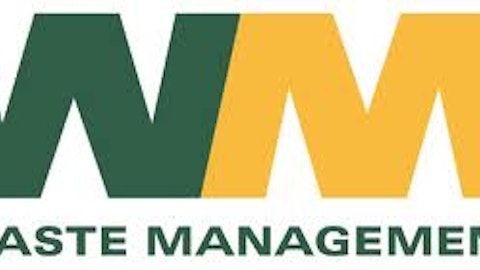Covanta Holding Corporation (NYSE:CVA) has lagged the overall market this year. As the S&P 500 has returned more than 15.2% in the past six months, Covanta Holding has generated only 8.6% during the same period. Joel Greenblatt and Steven Cohen exited this stock in the first quarter 2013. However, it seems to be a decent dividend paying company, offering investors nice dividend yield at 3.3%. Should investors be bearish or bullish about Covanta?
Business snapshot
Covanta Holding Corporation (NYSE:CVA), incorporated in 1992, is considered one of the biggest owners and operators of energy-from-waste (EfW) infrastructure, generating revenue both from waste disposal and electricity generation under long-term contracts. Moreover, it also earns more from the sale of recycled ferrous and non-ferrous metals in the energy-from-waste process. Around 62% of its total revenue, more than $1 billion, was generated from waste disposal. The electricity and steam sales ranked second, with $367 million in 2012, accounting for 24% of the total revenue.
There are three categories in the company’s EfW projects: Tip Fee projects, Service Fee (Owned) projects and Service Fee (Operated) projects. In the Tip Fee projects, Covanta Holding Corporation (NYSE:CVA) received a tipping fee per ton for waste process, while it retains 100% of energy and metals revenue. In both Service Fee project types, the company’s waste process revenue is fixed with performance incentives and inflation adjustment while the energy and metal revenue were shared with client. Interestingly, around 80%-85% of the total waste disposal and energy revenue were contracted or hedge, while the metals revenue would fluctuate along with the commodities market price.
For the full year 2013, Covanta Holding Corporation (NYSE:CVA) expected to generate around $500-$530 million in EBITDA, with around $250 – $280 million in free cash flow. The EPS was estimated to be around $0.40 to $0.50 per share. At $20.20 per share, Covanta Holding Corporation (NYSE:CVA) is worth around $2.6 billion on the market. The market seems to value Covanta quite expensively, at 35.7 times its forward earnings.
Highest valuation and high payout ratio
Compared to its peers Waste Connections, Inc. (NYSE:WCN) and Waste Management, Inc. (NYSE:WM), Covanta seems to be the most expensively valued. Waste Management, Inc. (NYSE:WM) is trading at $40.70 per share, with the total market cap of around $19 billion. The market values the company at around 17 times its forward earnings. Waste Management has been extracting value from the waste stream, converting around 7.7 million tons of solid waste into 5.3 billion KWH of electricity. That amount of electricity is sufficient to power more than 705,000 homes. In 2013, the growth in its long term yield would be driven by landfill and post collection. The company reported that it would concentrate on improving recycling ROIC through both yield and rebate management. For the full year 2013, Waste Management expected to produced around $2.15 to $2.20 EPS with the full year free cash flow of around $1.1 to $1.2 billion.
Waste Connections, Inc. (NYSE:WCN) also has a lower valuation than Covanta. It is trading at around $40 per share, with the total market cap of $5 billion. The market values the company at around 20 times its forward earnings. Waste Connection currently serves around 2 million customers in 30 states in the U.S., with solid waste accounting for as much as 87% of its total revenue. In the first quarter 2013, Waste Connection’s (NYSE:WCN) adjusted EBITDA and free cash flow came in at $146.1 million and $100.2 million, respectively. For the full year 2013, Waste Connection expected to generate around $1.92 to $1.95 billion in revenue, 17% higher than revenue last year, with the pricing growth of around 3%. The company estimated double-digit growth in EPS while the free cash flow could came in at around $300 million, or $2.50 per share.






